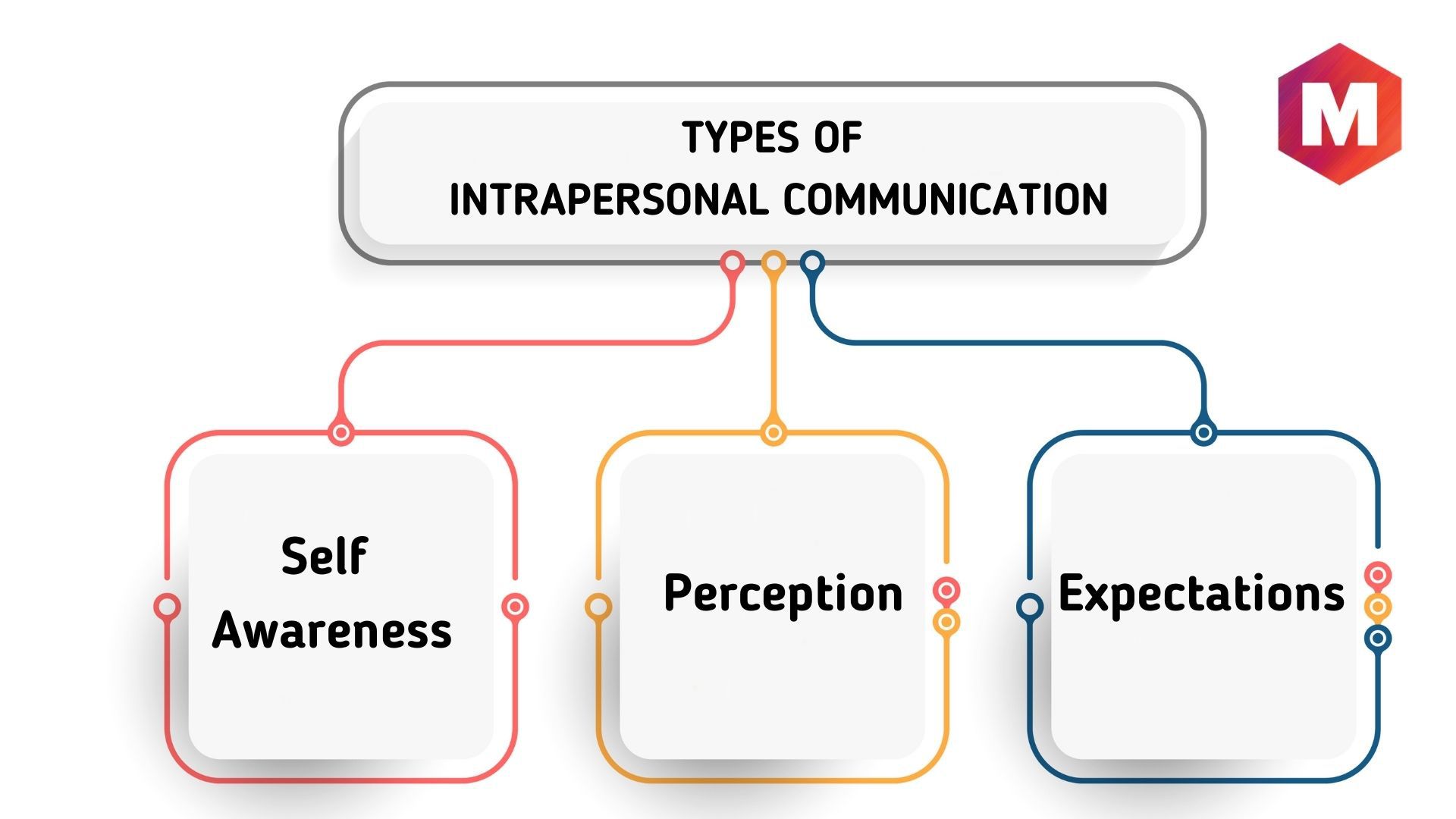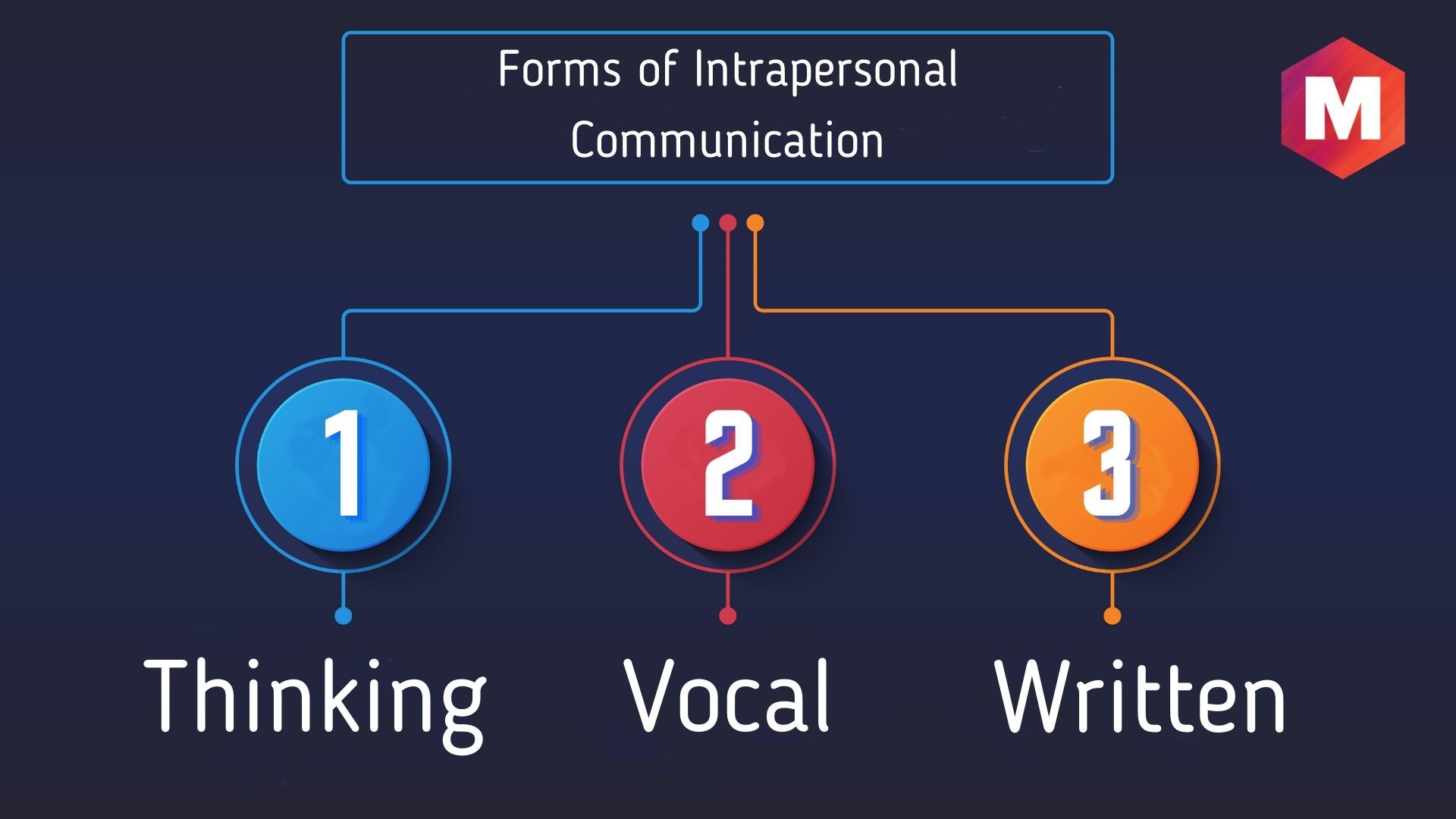
What Is Intrapersonal Communication: Understanding Its Types and Forms

Intrapersonal communication is the way we communicate with ourselves It happens within our minds and includes problem-solving, decision-making, and self-reflection It differs from interpersonal communication, which involves communication between two or more people Developing strong intrapersonal communication skills can lead to better self-awareness, personal growth, and overall well-being
Intrapersonal communication refers to the internal dialogue that takes place within ourselves. This can manifest as problem-solving, decision-making, self-reflection, and exploring our beliefs and thought processes.
Key Takeaways –
By engaging in intrapersonal communication, you can also gain insight into your own thought processes and behaviors, allowing you to make positive changes and improve your overall well-being. It is a powerful tool for personal growth and self-awareness.
Enhancing your self-awareness can lead to more deliberate and knowledgeable choices that propel you towards your desired goals. Intrapersonal communication involves various forms of internal dialogue such as imagination, self-reflection, and memory recall. Its significant role in both personal and social interactions highlights the importance of exploring its intricacies.
What is Intrapersonal Communication?
Intrapersonal Communication refers to the communication that takes place within an individual. It encompasses verbal, written, or even unspoken thoughts that occur in one's mind. It can be seen as a form of self-talk, a way of communicating with oneself to understand one's thoughts, emotions, and feelings.
Intrapersonal communication is a constant occurrence in our daily lives. We engage in self-talk about our physical and mental well-being, current events, creative ideas, and more. This internal dialogue can either be positive or negative, depending on the nature of our thoughts. Engaging in healthy intrapersonal communication can have a rejuvenating effect, especially after a long and stressful day. Additionally, daydreaming and imagining ourselves in different scenarios can also be considered a form of intrapersonal communication.
What is the difference between Interpersonal and Intrapersonal communication?
Effective communication can take on different forms, and intrapersonal and interpersonal communication are two such forms. Intrapersonal communication involves an individual engaging in self-talk as a means of self-analysis, problem-solving, self-awareness, and personal development. On the other hand, interpersonal communication aims to build connections, share information and emotions, and resolve conflicts with others. Understanding the differences between these two types of communication can help individuals improve their overall communication skills.
Interpersonal communication involves the sharing of information, ideas, or feelings between two or more individuals, while intrapersonal communication pertains to a person's inner dialogue, thoughts, or introspection. Interpersonal communication occurs frequently whenever we engage with others in various settings such as work, education, or social situations. The frequency of intrapersonal communication varies among individuals depending on the circumstances, but it typically occurs more frequently.
Interpersonal communication can utilize various communication channels such as verbal, nonverbal, and technological means. Conversely, intrapersonal communication pertains to communication happening within oneself, encompassing cognitive functions, emotions, and ideas.
In terms of feedback, immediate responses are readily available when communicating with others. In contrast, when communicating inwardly, it may not be immediately apparent. Only when changes in emotions, behaviors, or ideas occur, will the input become clear.
Intrapersonal communication involves self-talk, while interpersonal communication is the exchange of messages between two or more people. Self-talk can help you become more self-aware, while communicating with others allows you to build connections and share information.
| Intrapersonal Communication | Interpersonal Communication | |
|---|---|---|
| Who is involved | Just you. | Two or more people. |
| When it occurs | When you want to talk to yourself make a plan or introspect. | When you communicate with others. |
| Media | Mind, audio recordings, diaries, etc. | Phone, PC, TV, in-persons, letters, etc. |
| Associated with | Analysis, awareness, thoughts, etc. | Exchange of thoughts and ideas. |
After being clear about intrapersonal communication and interpersonal communication, let us now delve into different types of intrapersonal types of communication-
Types of Intrapersonal Communication
Whether we say something or not, it automatically conveys a message to the persons surrounding us or the communication can be with our self all in mind.
There are three major sorts of Intrapersonal Communication.
1. Self Awareness
of yourself impacts your behavior and interactions with others. It shapes how you present yourself to the world and influences the way others perceive you. It is crucial to have a positive self-image and to work on improving it constantly. This can improve your relationships, boost your confidence, and help you achieve your goals. Taking time to reflect on your self-perception can lead to personal growth and self-awareness.
of others can also affect your perception of them. It’s important to be aware of your own biases and try to approach each individual with an open mind, free from preconceived notions. By doing this, you allow yourself to see others for who they truly are, rather than through the lens of your own expectations and assumptions. This not only improves your relationships with others but also helps you to develop a more accurate and nuanced understanding of the world around you.
Our expectations for both our own future and the future of others are crucial aspects of intrapersonal communication. Many individuals strive for greatness and work tirelessly to turn their expectations into reality. However, it is important to note that unrealistic expectations can often result in disappointment. Our expectations are shaped by our experiences and the lessons we have learned from our environment. By understanding these three aspects, we can develop a framework for processing our thoughts and exploring our inner selves.
Advantages of Intrapersonal Communication
Mastering the art of intrapersonal communication can bring numerous benefits. Essentially, being an intrapersonal person can open up a world of possibilities. The advantages of intrapersonal communication include:
Self-talk is a powerful tool in understanding one's own emotions and thoughts. Through intrapersonal communication, individuals can gain a deeper understanding of themselves and their emotional state. This awareness is crucial in building self-confidence and navigating life's challenges. In addition, intrapersonal communication also involves empathy and understanding the perspectives of others, allowing individuals to put themselves in someone else's shoes and gain a greater appreciation for their experiences.
Intrapersonal Communication can be a powerful tool for tackling challenging situations by utilizing internal monologue. This allows individuals to analyze their thoughts and feelings, leading to effective problem-solving. Engaging in active listening through improved intrapersonal communication skills not only enhances human communication, but also boosts self-esteem. Moreover, decision-making becomes a more streamlined process through inner dialogue.
Incorporating intrapersonal communication into your daily routine can be a powerful tool for self-improvement. By focusing on developing positive personality traits and improving your self-image, you can enhance your ability to communicate effectively with others. This, in turn, can help you build stronger coping skills and develop constructive emotional responses to overcome negative thoughts and feelings.
Disadvantages of Intrapersonal communication
Overthinking can lead to a harmful cycle of overanalyzing situations and engaging in negative self-talk. This can have a detrimental effect on one's mental health and self-esteem, leading to worry, anxiety, and impaired vision. On the other hand, while intrapersonal communication can be beneficial for self-reflection and understanding, relying too heavily on it can result in isolation from others and feelings of loneliness, ultimately impacting one's mental well-being in a negative way.
Internal Dialogue and Its Negative Effects on Personal Growth: One's internal dialogue can lead to confirmation bias and unrealistic expectations, hindering the ability to learn and be open to different viewpoints, ultimately hindering personal growth.
Intrapersonal Communication Examples
can arise from the misinterpretation of emotions and thoughts when individuals lack feedback from others. This can lead to a distorted perception of their own feelings and ideas, resulting in self-deception and a lack of self-awareness regarding their actions.Self-Talk, also known as internal conversations and monologues, is an example of intrapersonal communication. It involves mentally practicing your speech, anticipating questions, and preparing responses, such as when preparing for a presentation.
Rewritten fragment: Daydreaming involves communicating with your subconscious mind and tapping into your inner core. For instance, when you imagine and plan for a future trip, you engage in internal conversations, envision different scenarios, and anticipate potential experiences.
Forms of Intrapersonal Communication
There are three major forms of Intrapersonal Communication
1. Thinking
communication is also an important part of this process. When you express your thoughts and ideas out loud, you are engaging in interpersonal communication. This can be done through conversations with others or even talking to yourself.
3. The final aspect of the thinking process is observation. By observing the world around us, we can gather information and insights that can inform our thoughts and ideas. This can be done through actively seeking out new experiences or simply paying attention to the details of our everyday lives.
communication is not the only way we communicate with ourselves. Self-talk, the act of talking to oneself out loud, is a process that is often used for replaying or rehearsing messages, as well as giving oneself instructions or hearing one's own emotions. This form of communication is not only important for self-reflection and self-improvement, but it is also a vital interpersonal skill when communicating with others.
The act of writing, whether it be in a personal diary, journal, reminder, shopping list or notes, is a vital component in the process of becoming more organized and productive. This form of intrapersonal communication allows for a clearer and more concise expression of thoughts and ideas, ultimately leading to greater clarity and focus in one's daily life.
How to Develop Stronger Intrapersonal Communication Skills?
Intrapersonal communication can be developed through various methods and is not an innate feature. With time and practice, one can improve this skill. Engaging in self-talk can enhance self-awareness and self-concept. Developing this habit requires focus and dedication. To optimize problem-solving and decision-making abilities, here are some helpful tips:
Develop a Schedule and Stick to It - Cultivating a habit of scheduling your tasks is a positive personal trait. Creating a to-do list enables you to remember what needs to be done next and encourages self-reflection. Additionally, identifying and utilizing your natural talents can enhance your thought process and inspire creativity. It's crucial to revisit and embrace these talents that may have been neglected in the past.
Engage in meditation to relax both your mind and body, which can promote a peaceful lifestyle. This state of calmness can lead to positive self-talk, a necessary step in clarifying one's self-concept. By engaging in uplifting conversations with ourselves, we can boost our mood and ward off any negative influences.
Identify Your Objectives - Take the time to clearly define what you want to achieve and how you plan to get there. Your objectives and aspirations are a reflection of your character. If you have a strong desire to accomplish something significant in your life, don't hesitate to pursue it.
Summing Up!
Individuals with an intrapersonal communication style possess a strong ability to utilize visualization, compassion, recognize negativity, make decisions, manage conflicts, lead, engage in internal dialogue, express themselves, listen actively, interact with themselves, provide feedback, and conduct subjective evaluations.
The key to effective intrapersonal communication lies in being aware of your own thoughts, inner voice, and self in various situations. This type of communication allows for a deeper understanding of human emotions, perceptions, and mental processes, connecting individuals with their inner selves.
Here it is important to understand that intrapersonal, as well as interpersonal communication, are equally important for communication expertise.
Do you consider yourself an intrapersonal person?
In your opinion, to what extent does intrapersonal communication contribute to improving one's personal interactions? Additionally, can you distinguish between intrapersonal and interpersonal communication? Please share your thoughts in the comments section.
NEXT
Informal Communication
PREV
Communication Media
START
Types of Communication















